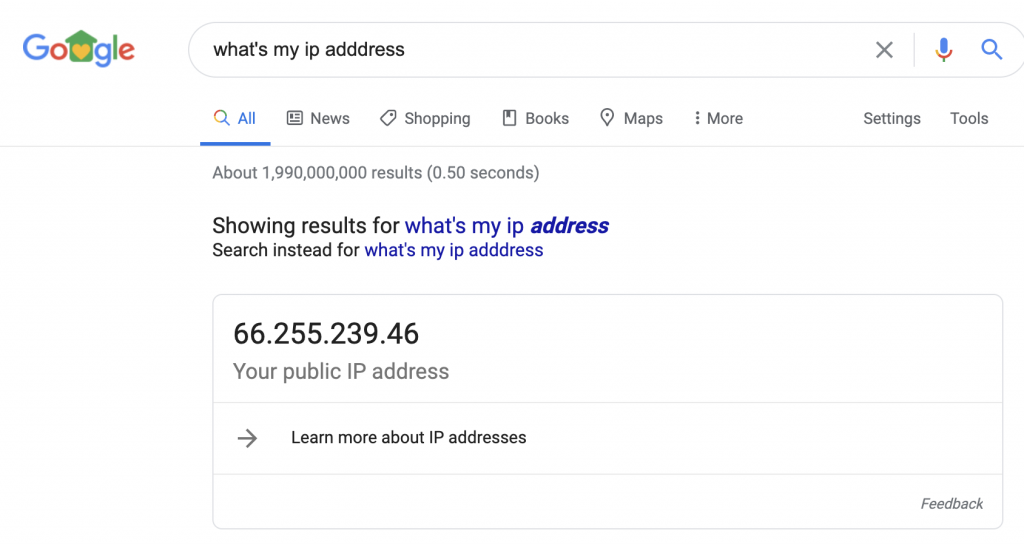Need to know your IP address? Or the IP address of your router? First of all, it’s simple to get this using Google and just search for the phrase “What’s my IP address”. You should get a result like this:

You can also go to some free websites that will give you your ip address, here is a short list:
https://whatismyipaddress.com/
https://www.whatismyip.com/
Router IP address:
So it’s typical that a customer would connect a WiFi router to our Fixed Wireless internet service. Our radios are configured to be routers with NAT to an internal private LAN of 192.168.100.100 to 200 with the radio LAN being 192.168.100.1. You could statically assign 192.168.100.2 through 99 to any of the devices on your LAN. But if you put a router in between you will have double NAT and have something like this:
66.255.239.46 (Radio Public IP WAN) -> 192.168.100.1 (Radio Private IP LAN) -> 192.168.100.101 (Router WAN) -> 192.168.1.1 (Router LAN) and then your LAN home network would exist on the 192.168.1.x network. Common brands can use all sorts of different private LAN IPs but most are 192.168.1.x, 192.168.2.x, or 10.0.0.x ranges.
Static versus Dynamic IP addresses:
Related topic questions about if your IP address changes, how often, and whether can you get one that doesn’t change (also known as static IP).
Dynamic IP:
First, our residential plans all provide a dynamic IP address. You can optionally purchase a static IP, but it’s seldom needed. But some uses are for work VPN security, to remotely access something like a camera system, or to access a server at your home. All of these are becoming less and less dependent on static IPs and all modern implementations use Cloud servers to avoid the need for static IPs other than servers. Our dynamic IPs change randomly from 1 to 4 weeks. This increases your security and protects against hackers and denial-of-service traffic attacks to some degree.
Static IP:
All our symmetric and dedicated internet services come with blocks of static IP addresses. These addresses remain the same for as long as you have the service.